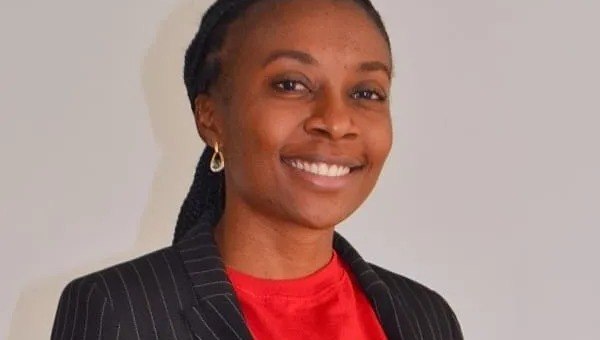Professor Gawdat Bahgat on Syria-Turkey Relations: Two Open Class Discussions
The Guarini Institute for Public Affairs welcomed Professor Gawdat Bahgat for two open class discussions on October 22, 2019. Professor Bahgat’s first lecture focused on the recent crisis between Turkey, Syria and the Kurds, whereas the second illustrated the role of Israel and Turkey in the Middle East.
Gawdat Bahgat is a professor at the Near East South Asia Center for Strategic Studies (NESA) at the National Defense University in Washington DC. He earned a master’s degree in Middle Eastern Studies from The American University in Cairo and a Ph.D. in Political Science from Florida State University. His main areas of expertise are energy security and the proliferation of weapons of mass destruction. Professor Bahgat is the author of more than 200 publications, including eight books.
The Syrian Civil War
During the first open class, Professor Bahgat discussed the role of different parties in the ongoing conflict in northern Syria. He outlined three possible outcomes of the conflict by using a three-level analysis. He divided countries as actors into three categories: national (Kurds and ISIS), regional (Turkey, Syria, Israel, and Iran) and international (the US, EU, and Russia).
The civil war in Syria dates back to 2011 when the anti-governmental protests were exacerbated by ISIS’ proclamation of an independent state in 2014. Turkey invaded Syria on October 9, following US president Donald Trump’s decision to withdraw the US troops from the Kurdish-controlled region on October 6.
Kurds and ISIS
The Kurds are considered to be the largest ethnic group without a nation state in the Middle East. The Kurdish minority groups reside in Turkey, Iran, Syria and Iraq, and, until recently, controlled over 1/3 of the Syrian territory. Professor Bahgat argued that although the Kurdish military supported American troops in their missions in the Middle East, the US has never established a protection agreement with the Kurds. The Kurdish militia that fought side by side with the American troops against ISIS now feels betrayed by the US. The Kurdish forces were responsible for captive ISIS fighters and camps for displaced families. Redeployed to fight the Turkish army, the Kurds made it easier for ISIS detainees to escape.
The involvement of Turkey and Kurds in Syria can be viewed in two ways, Professor Bahgat said. On the one hand, Kurds played an important role in the war against ISIS, and it would be Assad’s duty to protect people in Syria. Thus, he sent Syrian armed forces to the border in order to repel Turkey’s invasion by all legitimate means. Both Turkey and Syria are Russian allies, therefore the active military confrontation between the two countries is quite unlikely. On the other hand, the recently ignited conflict gives Assad’s regime an opportunity to regain control of the northeastern territories as well as solve the issue of refugees’ resettlement at once.
The Involvement of Turkey and Israel
While discussing the regional actors in the conflict, Professor Bahgat defined Turkey as the main initiator of ‘chaos’ in the Middle East. According to Bahgat, Turkey’s invasion of the northeastern Syrian territories was motivated by two reasons. First, Turkey’s desire to create a buffer zone at the Turkish-Syrian border, providing an excuse to relocate 3.6 million Syrian refugees who flew to Turkey during the Syrian civil war. Second, Turkey, as well as the US, regards the Kurdish People’s Protection Unit (YPG) that controls northeastern Syria, as a terrorist organization. The authoritarian character of Turkey’s foreign policy and the close relations between Erdogan and Putin surely worries the US, as Turkey is an American ally. With its population of roughly 80 million people, its status as the second largest armed force in NATO and considering its location on the intersection of Europe and Asia, Turkey maintains its position as a strategically crucial country.
The position of Israel in this situation is quite different. On the regional level, by withdrawing troops from Syria, the US sent a negative signal to Israel, which is largely dependent on US support. Iran and Iraq, members of the Arab League, have officially condemned Turkish actions in northeastern Syria.
The International Players
Professor Bahgat then described the US, Russian, and the EU positions. Although not timely, he said that the withdrawal of the US troops from Syria reflects the U.S. public opinion’s desire to bring back American troops and avoid involvement in foreign wars. Therefore, Bahgat concluded, public opinion in the US influences the country’s foreign policy. Following the US withdrawal, Russia has the opportunity to reinstate its image of a reliable ally in the region, but will, as professor Bahgat stated, pay a high price as the situation in the Middle East is very complex. The only concern for the EU regarding the current crisis in the Middle East will be the possible increase in the influx of refugees to Europe. Bahgat concluded by saying that whatever solution will be implemented, it should be made on the premises of compromise so as to avoid another major conflict in the region.
—————————–
The Role of Israel and Turkey in the Middle East
In the second open class, Professor Bahgat discussed the roles Israel and Turkey play in the Middle East region. According to Professor Bahgat, the Western interest in this region is due to a variety of reasons. First of all, natural resources, as the global economy runs on the oil that mainly comes from Middle Eastern countries. Another reason is the support that Israel receives from the US and the EU. As Professor Bahgat mentioned, the Middle East is considered to be the epicenter of terrorist activities, hence another reason for the West to pay close attention. The final reason that Bahgat gave for Western interest in the area is the desire to make sure that no weapons of mass destruction, such as chemical, biological and nuclear, are acquired by any country.
According to Professor Bahgat, in recent years the influence of Arab countries such as Egypt, Syria and Iraq has dramatically declined as a result of economic and political crisis. The dominance in the region has shifted towards Israel and Turkey, which in turn, are also challenged by the change of power relations.
Israel
Israel, with a current population of 7-8 million people, was established in 1948. Israel’s founding fathers prioritized two goals – making Israel Jewish and democratic. Israel has one of the strongest militaries in the world, it’s at the forefront of high-tech development, and it’s the only nuclear power in the region. As the largest democracy in the Middle East, the political situation in Israel is complicated. Israel could be considered democratic, but only towards Jewish citizens, while non-Jews face constant discrimination (the latest Nation-State law is an example). Moreover, religion still plays an important role in Israeli politics. In fact, according to Professor Bahgat, the failure of recent elections could be attributed in part to the strong opposition of religious voters. Another point of consideration raised by Bahgat is the ongoing Israel – Palestinian conflict. Israel opposes the proposed two-state solution, claiming the West Bank territories.
Turkey
According to Professor Bahgat, the political dynamics within Turkey are influenced by the “identity crisis” of the Turkish population, who is torn between retaining its Islamic identity and becoming more westernized. Turkey, with a population of about 80 million people, was proclaimed a secular state in 1923 by Kemal Ataturk. Although since then Turkey has tried to detach itself from its Islamic past, the recent dynamics in Erdogan’s policies seem to prove the opposite. Turkey’s focus on the Middle East has increased since the EU denied the country entry to the European Union. Turkey’s desire to regain its status of Islamic Caliphate and to return to its Islamic identity has manifested itself in both its foreign and domestic policy. An example could be the recent law that states that women must wear veils when they are in governmental structures. According to Professor Bahgat, such initiatives have been positively regarded by other Middle Eastern powers. Most Arab countries would prefer seeing Turkey as a dominant country in the region rather than Iran, because Turkey is largely dominated by Sunni Muslims, whereas Iran is mostly comprised of Shia Muslims
Overall, the recent tendencies in both Turkey and Israel, two US allies, have definitely raised concerns over stability in the Middle East. Professor Bahgat also concluded the lecture by highlighting the importance of continuing such discussions, as there are no right or wrong answers to this issue.
(Kamila Sabyrrakhim)






